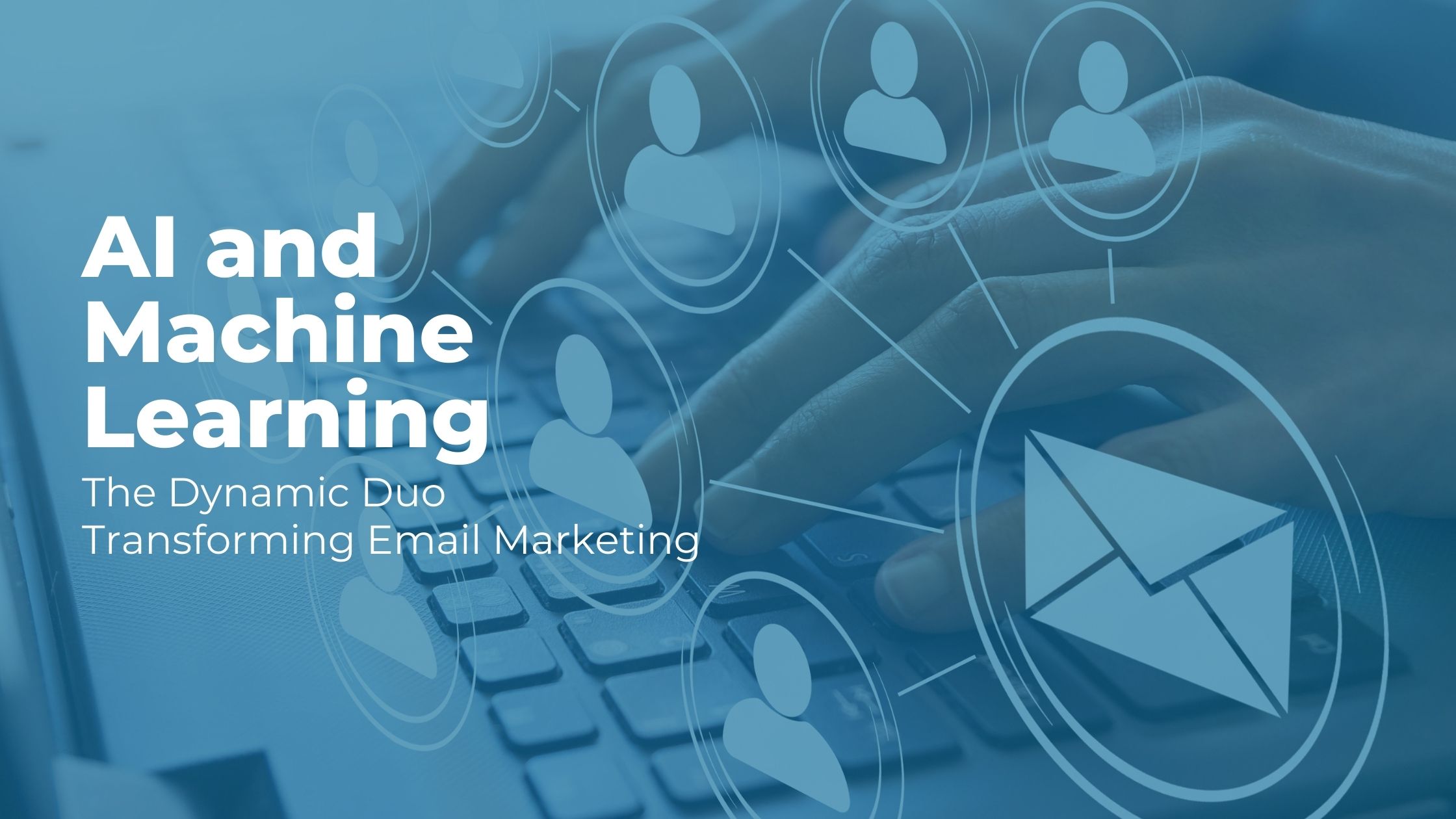There’s an undeniable shift happening in the marketing landscape, and it’s being led by Artificial Intelligence (AI) and Machine Learning (ML). The world as we know it, including B2B marketing, is being redefined by these technologies. In this article, we’ll explore the profound impact this transition will likely have on email marketing and how you can leverage these changes to your advantage.
This article will explore how this fundamental transition is set to shape the future of email marketing and how you can ride the wave to your advantage.
Demystifying the Terms: AI and ML Explained
Before we delve deeper, let’s unravel the essence of AI and Machine Learning. AI, which originated in the 1950s, is now all grown-up, maturing over the decades into what is now known as the AI revolution.
AI, in its simplest form, aims to build computer systems capable of replicating human intelligence capabilities – from speech recognition, natural language processing, and machine vision to the power to learn. This last bit is where Machine Learning comes into play. AI systems are branded as ‘intelligent’ because they can ingest vast amounts of data and “learn” from it to make predictions. Machine Learning facilitates this learning process, putting the ‘I’ in AI. And that’s precisely why AI and ML are becoming invaluable tools for email marketers.
From Theory to Practice: AI in Email Marketing
If this is all a bit high-level, bear with us. AI’s current prominence arises from its shift from being an abstract concept to having real-world applications. According to Gartner, 75% of enterprises will transition from piloting to operationalizing AI by 2024. As a result, AI is increasingly becoming an inherent part of the standard email marketing tech stack, with many benefits.
Data-Driven Insights and Power-Packed Lead Generation
One of the enduring challenges in B2B email marketing is generating quality leads, understanding them, and driving them through the sales funnel.
By leveraging cloud-based solutions such as Customer Data Platforms, marketers can gather online and offline customer data. Combine this with the power of AI, and you’ve got a recipe for heightened lead generation, refined segmentation, and sharp lead-scoring strategies. AI identifies patterns in your customer data, allowing for efficient segmentation and helping identify user groups ideal for Account-Based Marketing (ABM) strategies.
Personalizing Customer Journeys and Recommendations
AI isn’t just about optimizing your approach to customer groups. It can also empower a more detailed approach by enabling personalized experiences for individual customers throughout their journey. With AI, you can design individual interactions and customer journeys, from personalized email campaigns to offering dynamic website content based on customer preferences. Recommendation engines have already proven successful in e-commerce and are now used in content management to optimize engagement.
Enhancing Interactions and Customer Experience
AI can also support your customers throughout their journey, pre and post-sale. This could range from optimizing your website for voice search to deploying AI-backed chatbots to answer customer queries armed with the customer’s purchasing history and prior interactions.
Yet, it’s crucial to tread cautiously when deploying customer-facing AI applications. While AI is potent, it’s not at a stage where it can entirely replace the human element of customer service. As it stands, AI is best suited for low-priority and low-complexity early customer service touchpoints.
Real-World Examples of AI and Machine Learning in Email Marketing
Several brands have embraced AI and ML in their email marketing with excellent results. For instance, Starbucks uses AI to deliver personalized emails to its customers, recommending products based on their purchase history and preferences. This has led to increased customer engagement and retention.
Similarly, clothing retailer, The North Face uses ML algorithms to send personalized product recommendations via email, significantly improving their conversion rates.
Charting the AI Course in Email Marketing
Artificial Intelligence is not just a fad; it’s here to stay. As email marketers, staying ahead of tech advancements is crucial for success, but knowing when and how to apply these technologies efficiently is equally important.
Some applications of AI have matured and can be easily integrated into standard products without requiring much expertise. Others are still developing and need careful input and thorough output validation. It’s important to stay updated on the relevant AI use cases and rely on specialists to harness AI’s power in ways that can provide a competitive edge.
In email marketing, despite the success of tools like ChatGPT, we advise using AI judiciously to support the research phase and optimize content. Solely depending on AI to write the final copy risks diluting your brand voice. Your smartest move is to collaborate with a professional content development agency and stay informed about how AI can boost your email marketing efforts.
Embrace the AI revolution in email marketing and see where this exciting journey takes us!
Talk with one of our team and find out how we embrace AI to uplift your marketing.




